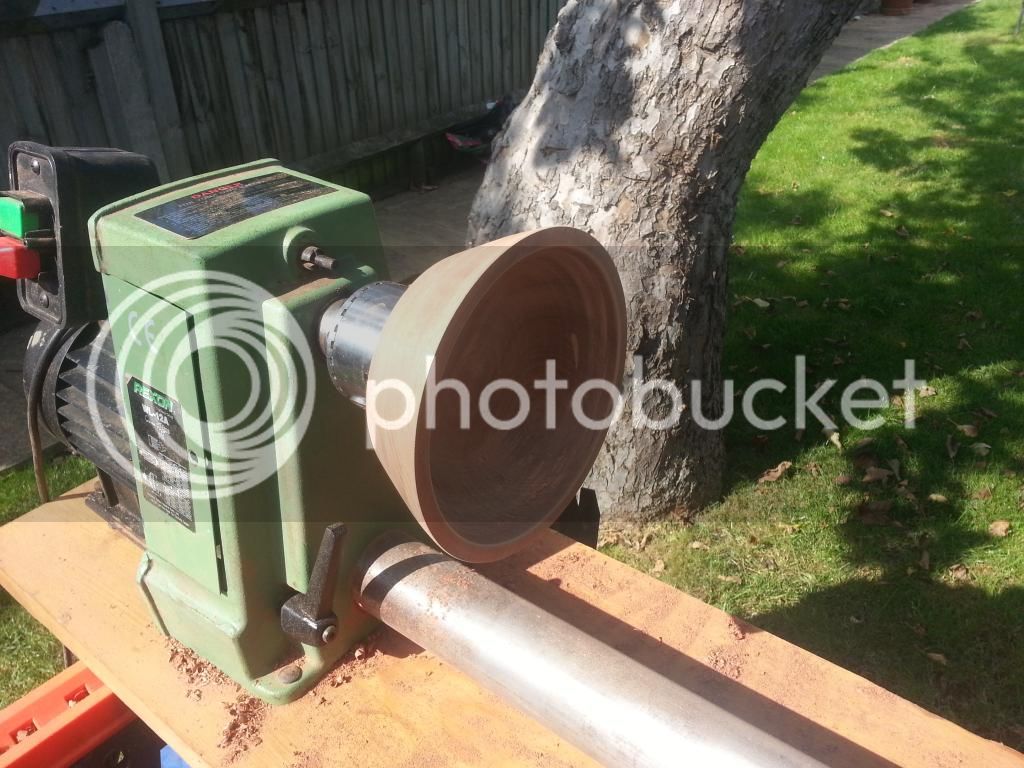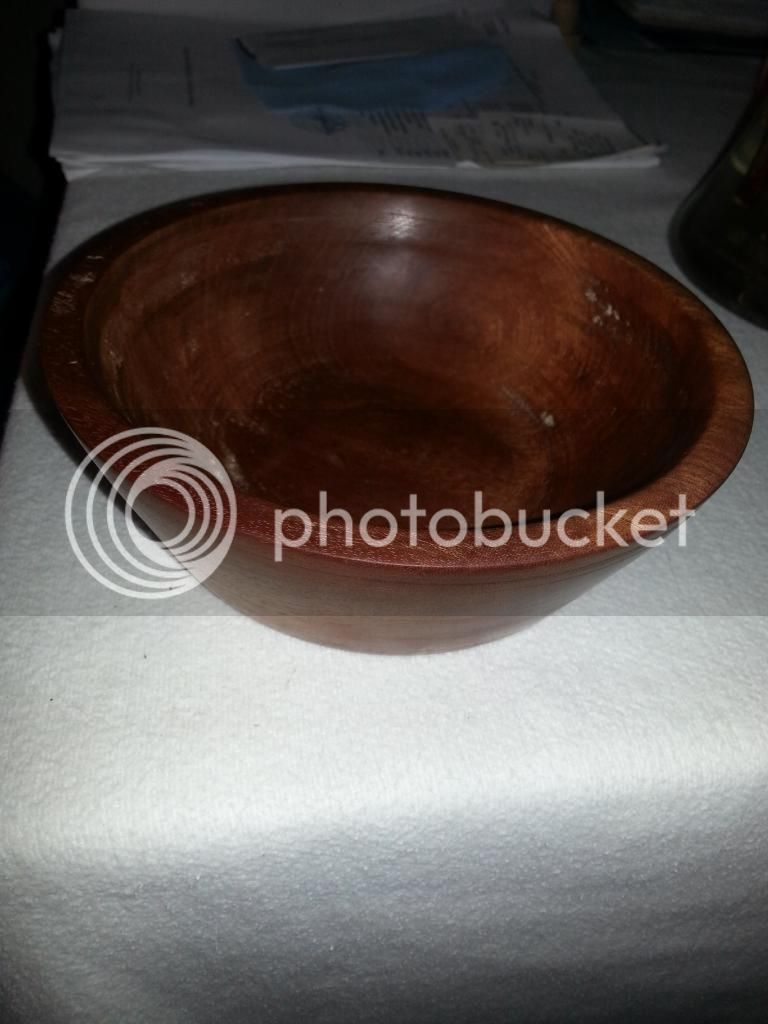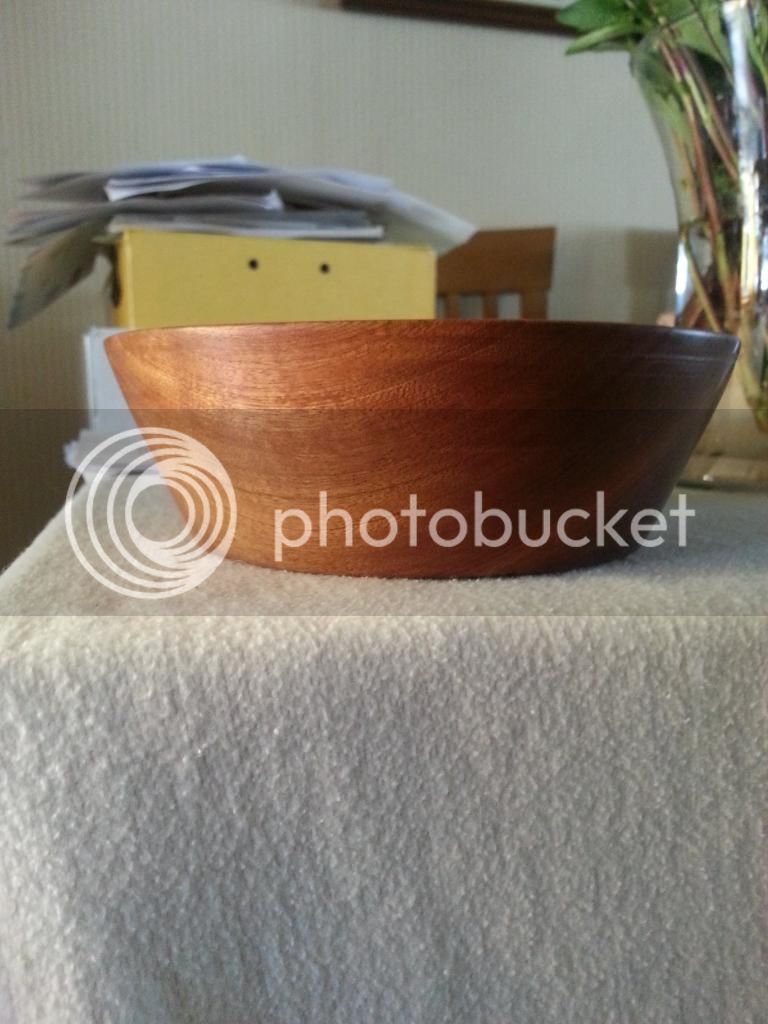Hi Chaps,
Been lurking for a while. Recently purchased a rexon lathe of everyone's favourite auction site and picked up some tools off there and rutlands (along with their chuck system).
Been after a lathe for a while as I make cricket bats as a business during my spare time. However, since acquiring it, I've been interested in turning, so after trying a few spindles on some pine (Including making a replacement handle for one of my drawknives) I decided to have a go at making a bowl. Found some well seasoned hardwood in the back of one of my friend's garages which was intended for my parents log burner. It had already been cut into a square block, along with a couple of other pieces, so I purloined them. My friend seemed to think it was Utile or Sapele.
Anyway, I sharpened my tools and got to work. There's a few tearouts that I couldn't completly erase, not sure whether that's to do with my tools not being sharp enough, my technique, a fault in the wood or all of the above. Being used to working with softwoods, willow in particular, I'm no stranger to tearouts, but they usually occur when I'm taking thick, heavy shavings.
So, enough of my ramblings, here's some pics of my setup and the finished results. Please be kind!
Cheers,
Adam
Been lurking for a while. Recently purchased a rexon lathe of everyone's favourite auction site and picked up some tools off there and rutlands (along with their chuck system).
Been after a lathe for a while as I make cricket bats as a business during my spare time. However, since acquiring it, I've been interested in turning, so after trying a few spindles on some pine (Including making a replacement handle for one of my drawknives) I decided to have a go at making a bowl. Found some well seasoned hardwood in the back of one of my friend's garages which was intended for my parents log burner. It had already been cut into a square block, along with a couple of other pieces, so I purloined them. My friend seemed to think it was Utile or Sapele.
Anyway, I sharpened my tools and got to work. There's a few tearouts that I couldn't completly erase, not sure whether that's to do with my tools not being sharp enough, my technique, a fault in the wood or all of the above. Being used to working with softwoods, willow in particular, I'm no stranger to tearouts, but they usually occur when I'm taking thick, heavy shavings.
So, enough of my ramblings, here's some pics of my setup and the finished results. Please be kind!
Cheers,
Adam




































